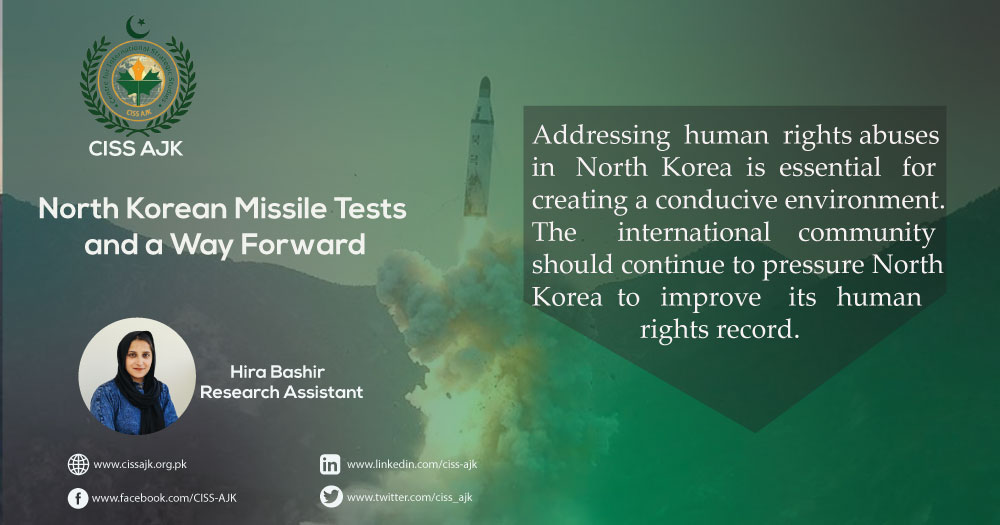764
With Russia’s open threats to use nuclear weapons in reaction to its invasion of Ukraine and suggestions from the US and NATO indicating retaliation, the concept of nuclear weapons use is becoming mainstream, and the decades-long nuclear taboo is rapidly weakening. Under these conditions, every new threat, missile test, military provocation, or proclamation of the significance or necessity of nuclear weapons increases the probability of catastrophe. This danger spiral is driven by limited and short-sighted national security notions in which the acquisition and use of nuclear weapons are considered the sole option to guard against foreign attack. North Korea’s missile tests are a source of concern for the international community as they threaten global peace and stability.
The North Korean regime has conducted multiple missile tests in recent years, including intercontinental ballistic missiles (ICBMs) that have the potential to reach the United States.
North Korea repeatedly claims to support nuclear disarmament and a nuclear-free world while claiming that security threats necessitate nuclear weapons and that nuclear disarmament cannot be considered until the security concerns are resolved.
The relationship between North Korea and South Korea is complicated. It would require multiple parties’ careful consideration and diplomatic efforts to resolve it. As two major regional players, the involvement of the United States and China could help find a peaceful resolution. Mediation efforts by the US and China could facilitate talks between the two Koreas, provide diplomatic support, and encourage confidence-building measures. But this would only be possible if US and China came under one umbrella, leaving issues between them. They must think about global peace and stability.
A way forward is through diplomatic engagement and negotiations, economic developments, and cultural exchange. Confidence-building measures and increased engagement with North Korean citizens can also promote understanding and goodwill between the two countries.
The two countries should engage in direct talks to address their concerns and build trust. Diplomatic efforts should focus on finding common ground, addressing differences, and negotiating a path forward for both countries.
Economic development could also help create a more stable environment in both countries. This could involve increased economic cooperation between North and South Korea, such as joint economic projects and infrastructure and human capital investments.
Promoting cultural exchanges between the two countries can help to increase understanding and goodwill. This could involve exchanging artists, athletes, students, and scholars and promoting tourism and cultural events.
Moreover, both sides could take steps to build confidence and reduce tensions, such as the establishment of hotlines to prevent misunderstandings and miscalculations, the removal of military assets from the border, and the signing of non-aggression agreements.
Addressing human rights abuses in North Korea is essential for creating a conducive environment. The international community should continue to pressure North Korea to improve its human rights record.



